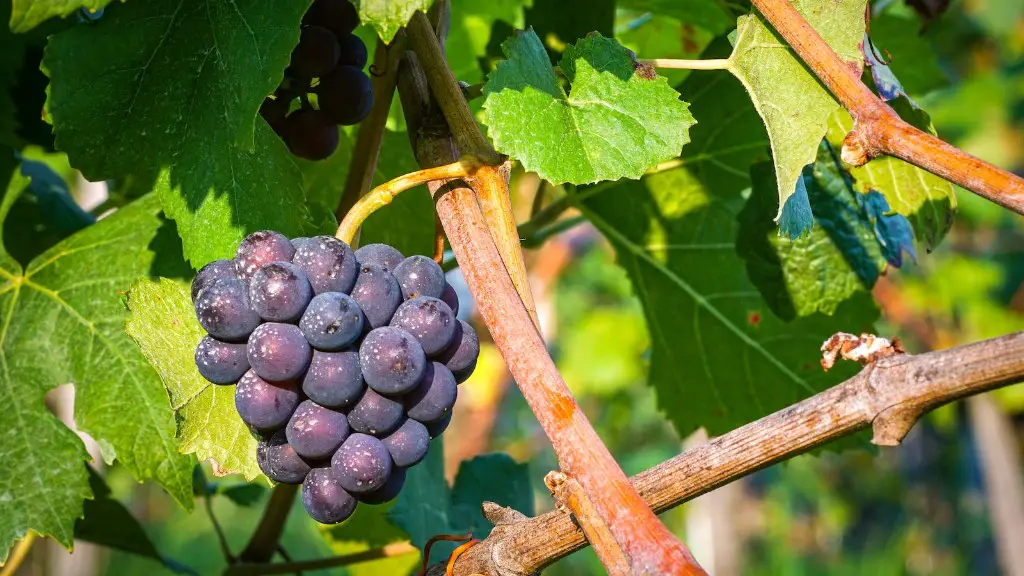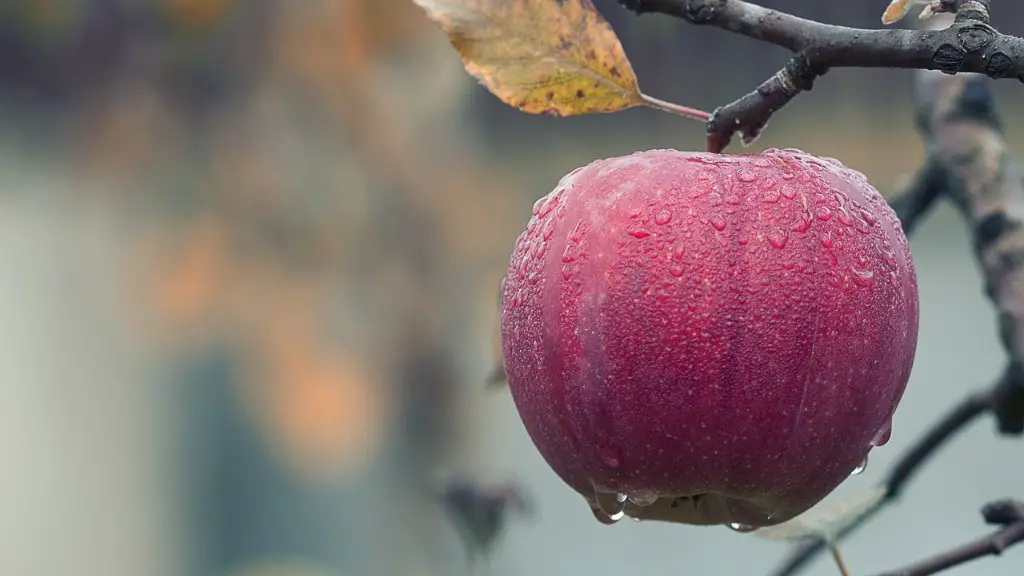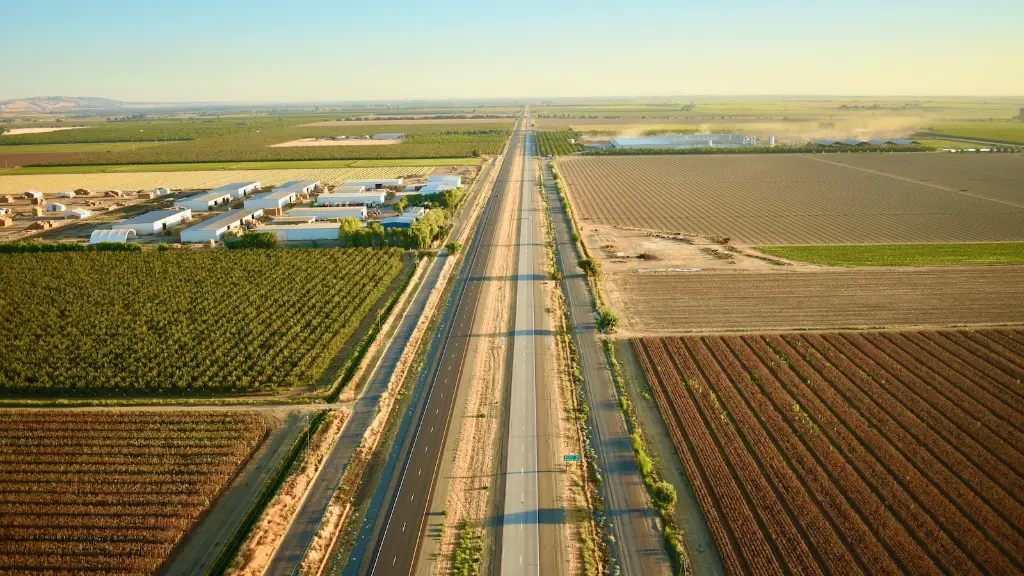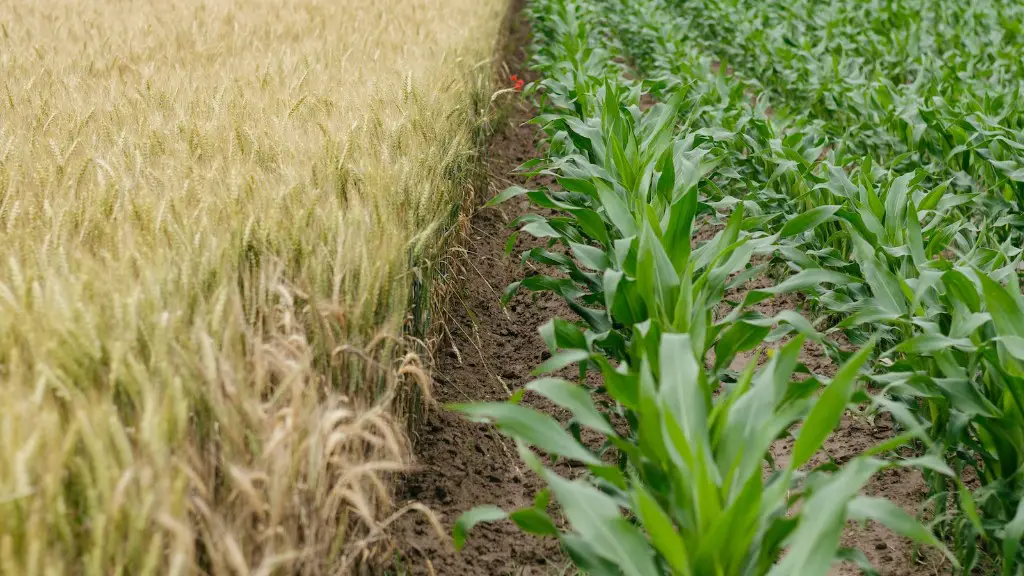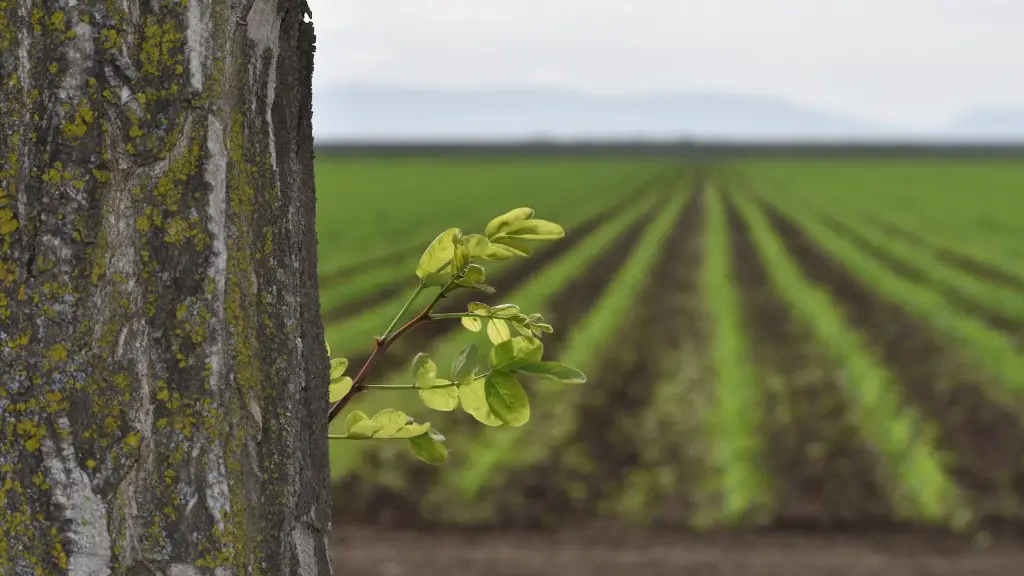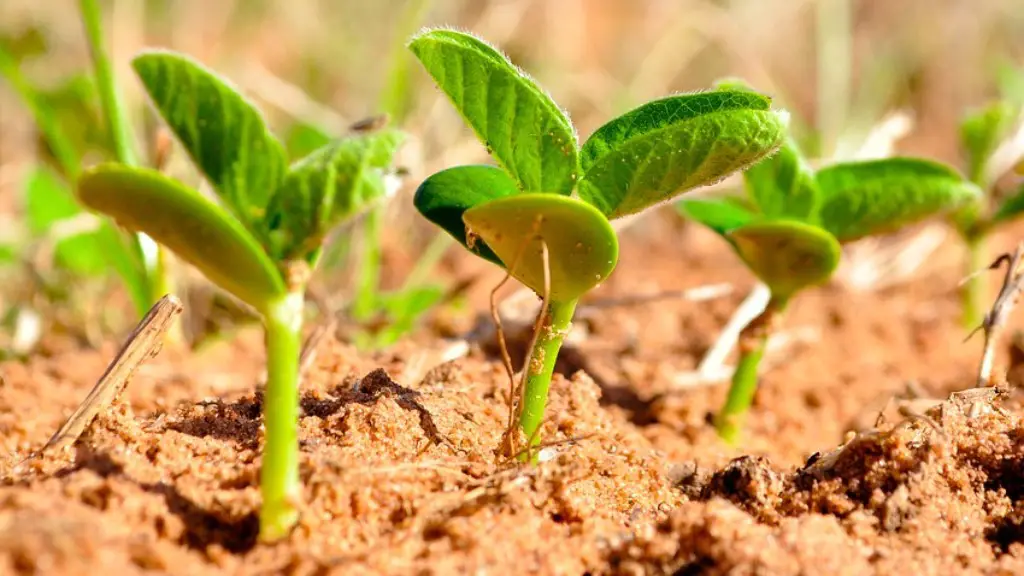Agriculture ecology is the study of how agricultural systems interact with the natural environment. It encompasses a wide range of topics, including soil science, crop science, animal science, and agroforestry. Agriculture ecology is an important tool for sustainable agriculture, as it can help farmers to understand and manage the complex interactions between their farm and the natural world.
Agricultural ecology is the study of how agricultural systems interact with the natural environment. This interaction can take many forms, including the impact of farming on local ecosystems, the use of agricultural products in ecosystem management, and the role of agriculture in global climate change.
What are the benefits of agricultural ecology?
Agroecology is the study of how ecological processes can be used to sustainably manage and enhance agricultural systems. It is a relatively new field that is constantly evolving, as researchers learn more about how ecological processes can be harnessed to improve agricultural productivity and resilience.
Agroecology has the potential to help us protect, restore and improve agricultural and food systems in the face of climate shocks and stressors. Diverse, well-integrated agroecological systems can promote greater carbon sequestration, increase resilience of livelihoods and provide climate change mitigation and adaptation solutions.
There is a growing body of evidence showing that agroecological approaches can help farmers adapt to climate change, improve water and soil conservation, and increase crop yields. In addition, agroecology can help to build social and ecological resilience, by promoting diversification, enhancing knowledge and skills, and strengthening community networks.
However, agroecology is not a silver bullet and will not be able to solve all of the challenges facing agriculture and food systems. It is just one tool that can be used to create more sustainable, resilient and productive agricultural systems.
Agroecology is a sustainable farming practice that works with nature. It is based on the ecological principles of relationships between plants, animals, people, and their environment. Agroecology is the application of these ecological concepts and principles to farming. This approach to farming aims to create a balance between the different elements in the ecosystem, and to create a sustainable system that is environmentally friendly and provides for the needs of the people involved.
What are examples of Agricultural Ecology
The biotic and abiotic factors in the environment interact with each other to help crops grow. For example, crop plants absorb nutrients from the soil to help them grow. They also absorb water to help them grow and produce fruits.
These are some of the most important values that we should all uphold in order to create a better, more sustainable world. Diversity helps us to see things from different perspectives and to learn from one another. Synergy allows us to work together to create something greater than the sum of our parts. Co-creation means that we all have a role to play in shaping our world. Sharing of knowledge helps us to learn from each other and to make the most efficient use of resources. Efficiency helps us to use less energy and to waste less. Resilience allows us to bounce back from setbacks and to adapt to change. Recycling helps us to conserve resources and to reduce pollution. Human and social values remind us that we are all interconnected and that we should treat each other with respect. Responsible governance means that we should all have a say in how our world is run. Culture and food traditions help us to connect with our heritage and to enjoy the richness of life. The circular and solidarity economies promote sustainable development and social justice.
How does ecology affect agriculture?
Ecosystem processes can play an important role in supporting agricultural systems. These processes can provide services such as pollination, pest control, genetic diversity for future agricultural use, soil retention, and regulation of soil fertility, nutrient cycling and water. By understanding and managing these processes, we can help to ensure the long-term productivity and sustainability of our agricultural systems.
Ecology is the study of the interactions between organisms and their environment. It can be divided into different subfields, each focusing on a different level of organization.
Molecular ecology focuses on the level of individual molecules, and how they interact with each other and the environment.
Organismal ecology focuses on the level of individual organisms, and how they interact with each other and the environment.
Population ecology focuses on the level of populations, and how they interact with each other and the environment.
Community ecology focuses on the level of communities, and how they interact with each other and the environment.
Global ecology focuses on the level of the entire planet, and how the different parts interact with each other and the environment.
Landscape ecology focuses on the level of landscapes, and how they interact with each other and the environment.
Ecosystem ecology focuses on the level of ecosystems, and how they interact with each other and the environment.
What are the 4 main fields of ecology?
There are a few different fields of ecology, each studying a different aspect of ecosystems:
Aquatic Ecology – the study of ecosystems found in water bodies such as estuarine, freshwater and marine.
Microbial Ecology – the study of microorganisms and their interactions with their environment.
Terrestrial Ecology – the study of ecosystems found on land.
Taxonomic Ecology – the study of the classification and identification of organisms.
Systems Ecology – the study of how ecosystems function as a whole.
Evolutionary Ecology – the study of how ecological communities change over time.
Behavioural Ecology – the study of how animals behave in relation to their environment.
Population Ecology – the study of how populations of animals interact with their environment.
Population ecology focuses on the study of populations of organisms, and the interactions between them. This can include things like predation, competition, and disease.
Behavioral ecology is the study of how animals behave in relation to their environment, and the evolutionary implications of that behavior. This can include things like foraging, mating, and social behavior.
Why is ecology important
Ecology is important for many reasons. It enriches our world and is crucial for human wellbeing and prosperity. It provides new knowledge of the interdependence between people and nature that is vital for food production, maintaining clean air and water, and sustaining biodiversity in a changing climate.
Ecology is the study of the relationships between living things and their environment. It is a vital science that helps us to understand how ecosystems work and how we can protect them. Ecology is important for many reasons:
1. It enriches our world
Ecology is vital for understanding the natural world and the intricate web of life that sustains us. It helps us to appreciate the beauty and wonder of nature, and to value the importance of conservation.
2. It is crucial for human wellbeing and prosperity
Ecology is essential for human survival. It provides new knowledge of the interdependence between people and nature that is vital for food production, maintaining clean air and water, and sustaining biodiversity in a changing climate.
3. It helps us to understand and solve environmental problems
Ecology is a powerful tool for solving environmental problems. It can help us to understand how human activities impact ecosystems, and to develop sustainable ways of living that
Greenpeace’s 7 principles for sustainable agriculture are:
1. Supply chain: Make sure that the food supply chain is fair and just, with farmers receiving a fair price for their products.
2. Food sovereignty: Respect the rights of communities to determine their own food systems, including what is grown, how it is grown, and who has access to it.
3. Food production and consumption: Promote sustainable methods of food production that protect the environment and the health of workers and consumers.
4. Biodiversity: Promote and protect the diversity of plant and animal life on Earth.
5. Soil fertility: Maintain and improve the fertility of the soil to support sustainable food production.
6. Ecological pest management: Use sustainable methods to manage pests, diseases, and weeds, without harming the environment or human health.
7. Strengthen agriculture: Support policies and practices that strengthen the resilience of agriculture and promote the well-being of farmers, workers, and communities.
What are the disadvantages of ecological farming?
Though organic farming has many advantages, there are some disadvantages too. Organic produce costs more since the yield from a land is not as much as what farmers produce through the conventional methods. Also, the production cost is high since a lot of labor and time are involved. There exists a lot of gap in distributing and marketing organic products.
Farming activities have a big impact on the natural ecological system. By clearing the ground, tilling the soil and planting crops, farmers upset the natural balance of the environment. This can lead to soil erosion, loss of habitat for wildlife and an increase in greenhouse gases.
What are the five main environmental impacts of agriculture
Agricultural production accounts for a range of environmental impacts, including soil fertility loss, eutrophication of water bodies, deforestation, climate change and pesticide pollution.
Soil fertility is essential for agricultural production, but intensive farming practices can lead to declining soil fertility and productivity. Eutrophication, the process by which water bodies become overly enriched with nutrients, is often caused by agricultural runoff and can have negative impacts on water quality and aquatic ecosystems. Deforestation can result from the conversion of forest land to cropland or grazing land, as well as from the logging of timber for fuel or construction. Climate change is caused by emissions of greenhouse gases, many of which are associated with agricultural production, including emissions from livestock, fertilizer use, and land-use change. Finally, pesticide pollution can occur when chemicals used in agriculture runoff into water bodies, where they can cause harm to aquatic organisms.
Sustainable agriculture practices are key to ensuring that our food supply is safe and secure. By rotating crops and embracing diversity, we can help to protect our soil and water resources. Planting cover crops and perennials can also help to reduce or eliminate tillage. And by applying integrated pest management (IPM), we can reduce the use of harmful pesticides and herbicides. Integrating livestock and crops can also help to improve soil health and reduce pollution. And finally, by managing whole systems and landscapes, we can help to ensure the long-term sustainability of our food supply.
What is a simple definition of ecology?
Ecologists study the relationship between living things and their habitats. The goal of ecology is to understand how organisms interact with their environment. This includes the study of how resources are used, how populations interact, and how ecosystems change over time.
The ecological levels are: 1) Organisms 2) populations 3) biological communities 4) ecosystems 5) landscapes 6) biomes 7) global.
Conclusion
Agricultural ecology is the study of the interactions between agricultural systems and their environment. It encompasses the fields of agronomy, ecology, and environmental science, and aims to solutions that are ecologically sound and economically viable.
A study of agriculture ecology is important for understanding how different farming practices can impact the environment. Agriculture ecology can also help farmers to develop more sustainable and environmentally friendly farming practices.
